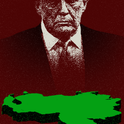If Tunisia has so far offered the best hope of a successful democratic transition born of the Arab Spring, then now it faces its greatest challenge. So much depends on how the newly-elected government—formed last year by the conservative, anti-Islamist Nidaa Tounes party—responds to the tragic shooting at the Bardo museum, a popular tourist attraction near the country's parliament which may have been the intended target, on Wednesday. The attack left 23 dead, including 20 foreign tourists, among them one British woman. Will it try to protect the fragile rule of law and the promise of accountable government? Or will it slide back into the thuggish police state it was under autocratic former president Ben Ali, who ruled the country from 1987-2011?
There is much to applaud about Tunisia’s transition from dictatorship to democracy following the 2011 revolution. Two peaceful elections have been held, a new constitution written and political polarisation resolved by dialogue and negotiation. However, there has been little in the way of much-needed reform of the police and the security forces which were the key instruments of power in Ben Ali’s "securocratic" state.
The police remain despised by many, especially in the poorer towns of the interior, where the revolution began. There have been precious few prosecutions of those responsible for killing and injuring demonstrators during the uprising and the most senior regime figures arrested have already been freed from jail. There is still no new law specifying the role and obligations of the security services. In 2014, 1,500 suspected extremists were arrested under a sweeping, much-criticised anti-terrorism law which is still in use even though it was brought in by the autocratic Ben Ali.
When the gunmen attacked the Bardo museum on Wednesday, MPs were meeting in the historic parliament building just round the corner to debate a new anti-terrorism law. This was not a one-off attack. The jihadist threat from a range of fragmented and perhaps competing groups has been growing over the past decade and accelerated dramatically after the 2011 revolution, which saw the fall of Ben Ali and ultimately led to the Sunni Islamist Ennahdha movement led by the intellectual Rachid Ghannouchi taking power. Dozens of soldiers, national guardsmen and police officers have been killed in a low-level insurgency over the past four years, largely fought out on the mountains of the Algerian border. Then the violence came to Tunis: in 2013 two opposition politicians, Chokri Belaid from the leftist Democratic Patriots' Movement and Mohamed Brahmi, a founder and leader of the Peoples' Movement party, were assassinated, a shock to the political system so profound that it eventually brought down the government of the Ennahdha movement. Meanwhile, largely unobserved, around 3,000 young Tunisian men and women left to fight against the Assad regime in Syria, often joining Islamic State or the al Qaeda ally, Jabhat al Nusra.
Some jihadi groups within Tunisia pledge allegiance to Islamic State, others al Qaeda; many rely on the flow of men and material from across the long, porous border with Libya. The two attackers involved in the Bardo shooting were young Tunisian men believed to have been trained in recent months in the chaos of Libya, though officials have not yet said which group is thought to have carried out the training. At the weekend a Tunisian commander of the radical Islamist militia Ansar al Sharia, which was blamed for the two political assassinations of 2013, was killed while fighting in the Libyan city of Sirte, an IS stronghold. A statement in the name of IS has claimed responsibility for the Bardo attack, which it warned was “just the first drop of the rain.” Tunisia’s democratic success has become a target for jihadis.
So far the government has arrested nine suspects and deployed soldiers on the streets of Tunis and other major cities, desperate to protect what remains of its important tourist industry. President Beji Caid Essebsi has promised to wage a “merciless war against terrorism." The threat is real, and may yet worsen when Tunisian fighters return from waging war in Syria or if IS expands its reach across the border from Libya. The test for the Tunisian government is whether it can stand up to this challenge without sacrificing all the democratic achievements that have been won in the past four years.
The Tunisia attacks are a test for its democracy
The country must not slide back into the thuggish police state it was under autocratic former president Ben Ali
March 20, 2015

People hold Tunisian flags as they demonstrate two days after gunmen attacked the museum and killed scores of people in Tunis, Tunisia. © Christophe Ena/AP/Press Association Images











